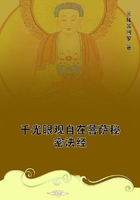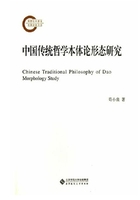But though this rule of unity of action be common to dramatic and epic poetry, we may still observe a difference betwixt them which may, perhaps, deserve our attention. In both these species of composition it is requisite the action be one and simple, in order to preserve the concern or sympathy entire and undiverted: But in epic or narrative poetry, this rule is also established upon another foundation, /VIZ. the necessity that is incumbent on every writer to form some plan or design before he enter on any discourse or narration, and to comprehend his subject in some general aspect or united view which may be the constant object of his attention. As the author is entirely lost in dramatic compositions, and the spectator supposes himself to be really present at the actions represented, this reason has no place with regard to the stage; but any dialogue or conversation may be introduced which, without improbability, might have passed in that determinate portion of space represented by the theater. Hence, in all our English comedies, even those of C/ONGREVE, the unity of action is never strictly observed; but the poet thinks it sufficient if his personages be any way related to each other by blood, or by living in the same family; and he afterwards introduces them in particular scenes, where they display their humors and characters without much forwarding the main action. The double plots of T/ERENCE are licenses of the same kind, but in a lesser degree. And though this conduct be not perfectly regular, it is not wholly unsuitable to the nature of comedy, where the movements and passions are not raised to such a height as in tragedy; at the same time that the fiction or representation palliates, in come degree, such licenses. In a narrative poem, the first proposition or design confines the author to one subject; and any digressions of this nature would, at first view, be rejected as absurd and monstrous. Neither B/OCCACE, L/A F/ONTAINE, nor any author of that kind, though pleasantry be their chief object, have ever indulged them.
To return to the comparison of history and epic poetry, we may conclude from the foregoing reasonings that as a certain unity is requisite in all productions, it cannot be wanting to history more than to any other; that in history the connection among the several events which unites them into one body is the relation of cause and effect, the same which takes place in epic poetry; and that, in the latter composition, this connection is only required to be closer and more sensible on account of the lively imagination and strong passions which must be touched by the poet in his narration. the P/ELOPONNESIAN war is a proper subject for history, the siege of A/THENS for an epic poem, and the death of A/LCIBIADES for a tragedy.
As the difference, therefore, betwixt history and epic poetry consists only in the degrees of connection which bind together those several events of which their subject is composed, it will be difficult, if not impossible, by words to determine exactly the bounds which separate them from each other. That is a matter of taste more than of reasoning; and perhaps this unity may often be discovered in a subject where, at first view, and from an abstract consideration, we should least expect to find it.
It is evident that H/OMER, in the course of his narration, exceeds the first proposition of his subject; and that the anger of A/CHILLES, which caused the death of H/ECTOR, is not the same with that which produced so many ills to the G/REEKS. But the strong connection betwixt these two movements, the quick transition from one to the other, the contrast betwixt the effects of concord and discord amongst the princes, and the natural curiosity we have to see A/CHILLES in action after so long repose -- all these causes carry on the reader, and produce a sufficient unity in the subject.
It may be objected to M/ILTON that he has traced up his causes to too great a distance, and that the rebellion of the angels produces the fall of man by a train of events which is both very long and very casual. Not to mention that the creation of the world, which he has related at length, is no more the cause of that catastrophe than of the battle of P/HARSALIA, or any other event that has ever harpooned.
But if we consider, on the other hand, that all these events, the rebellion of the angels, the creation of the world, and the fall of man, each other in being miraculous, and out of the common course of nature; that they are supposed to be in time; and that, being detached from all other events, and being the only original facts which revelation discovers, they strike the eye at once, and naturally recall each other to the thought or imagination -- if we consider all these circumstances, Isay, we shall find that these parts of the action have a sufficient unity to make them be comprehended in one fable or narration. To which we may add that the rebellion of the angels and the fall of man have a peculiar resemblance, as being counterparts to each other, and presenting to the reader the same moral of obedience to our Creator.
These loose hints I have thrown together in order to excite the curiosity of philosophers, and beget a suspicion at least if not a full persuasion that this subject is very copious, and that many operations of the human mind depend on the connection or association of ideas which is here explained. Particularly, the sympathy betwixt the passions and imagination will, perhaps, appear remarkable; while we observe that the affections, excited by one object, pass easily to another connected with it, but transfuse themselves with difficulty, or not at all, along different objects which have no manner of connection together. By introducing into any composition personages and actions foreign to each other, an injudicious author loses that communication of emotions by which alone he can interest the heart and raise the passions to their proper height and period. the full explication of this principle and all its consequences would lead us into reasonings too profound and too copious for these Essays. It is sufficient for us, at present, to have established this conclusion, that the three connecting principles of all ideas are the relations of , , and .
* * * *















